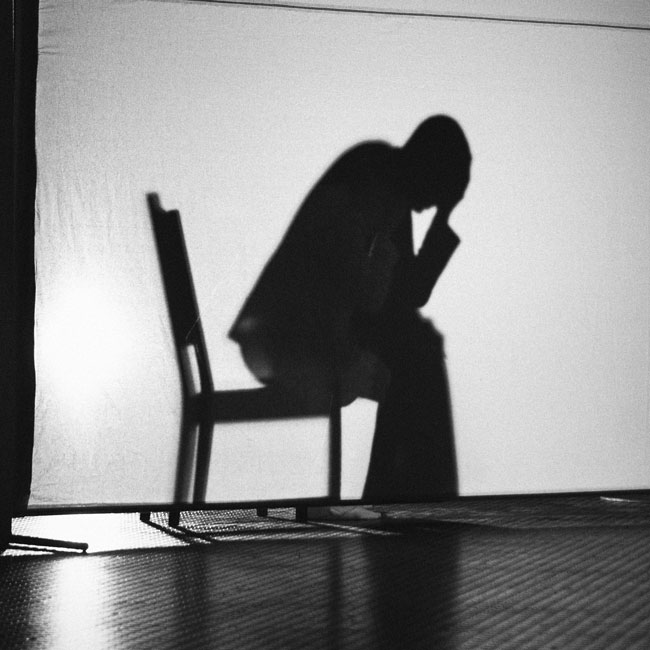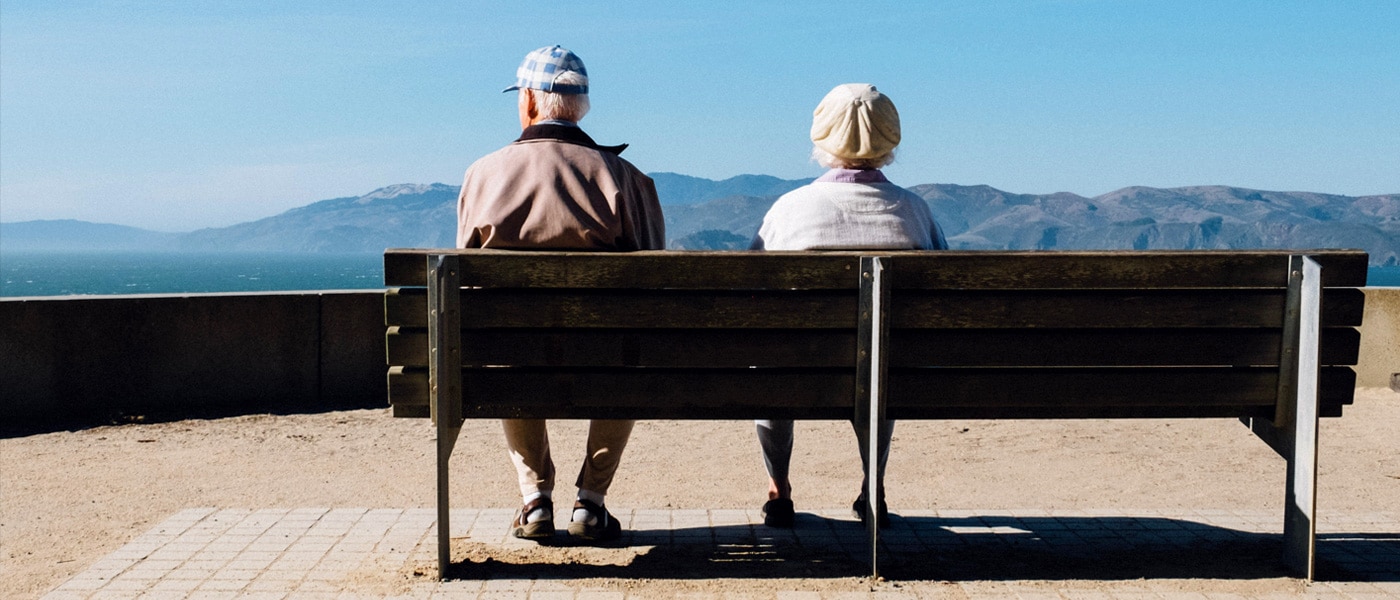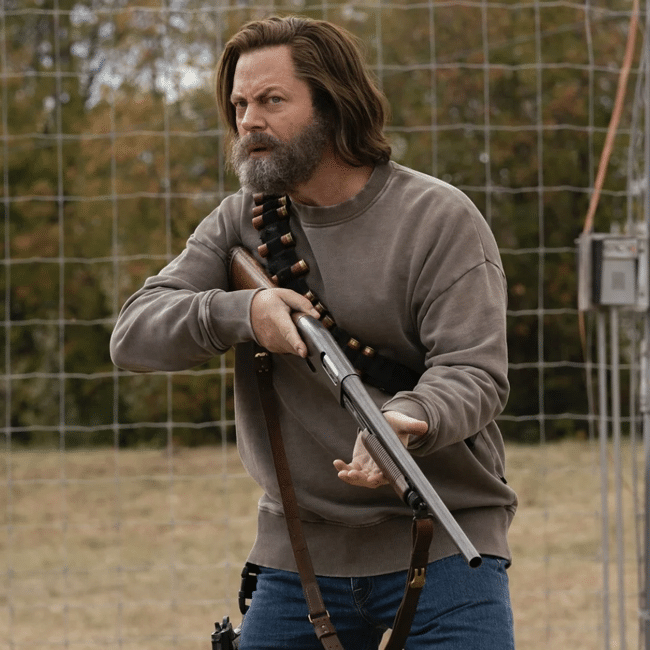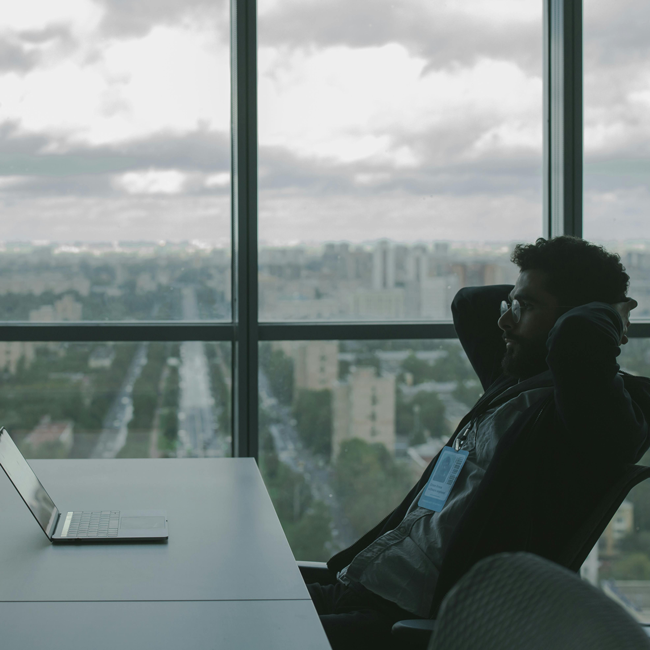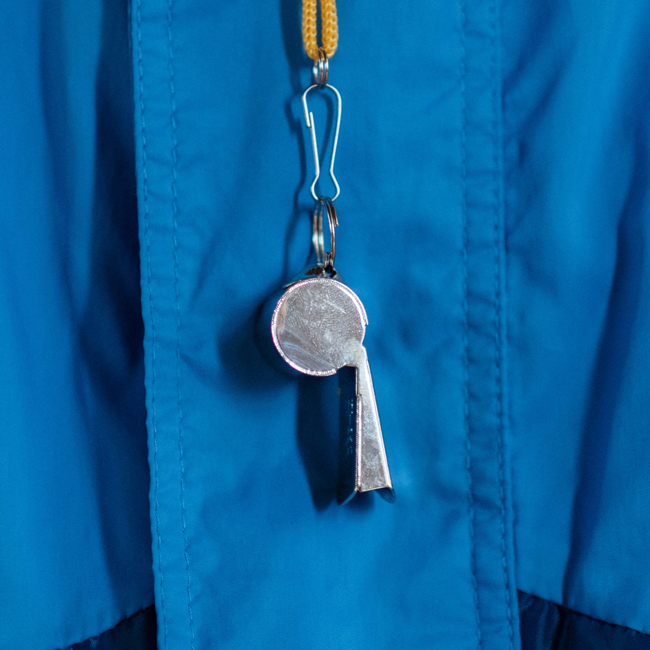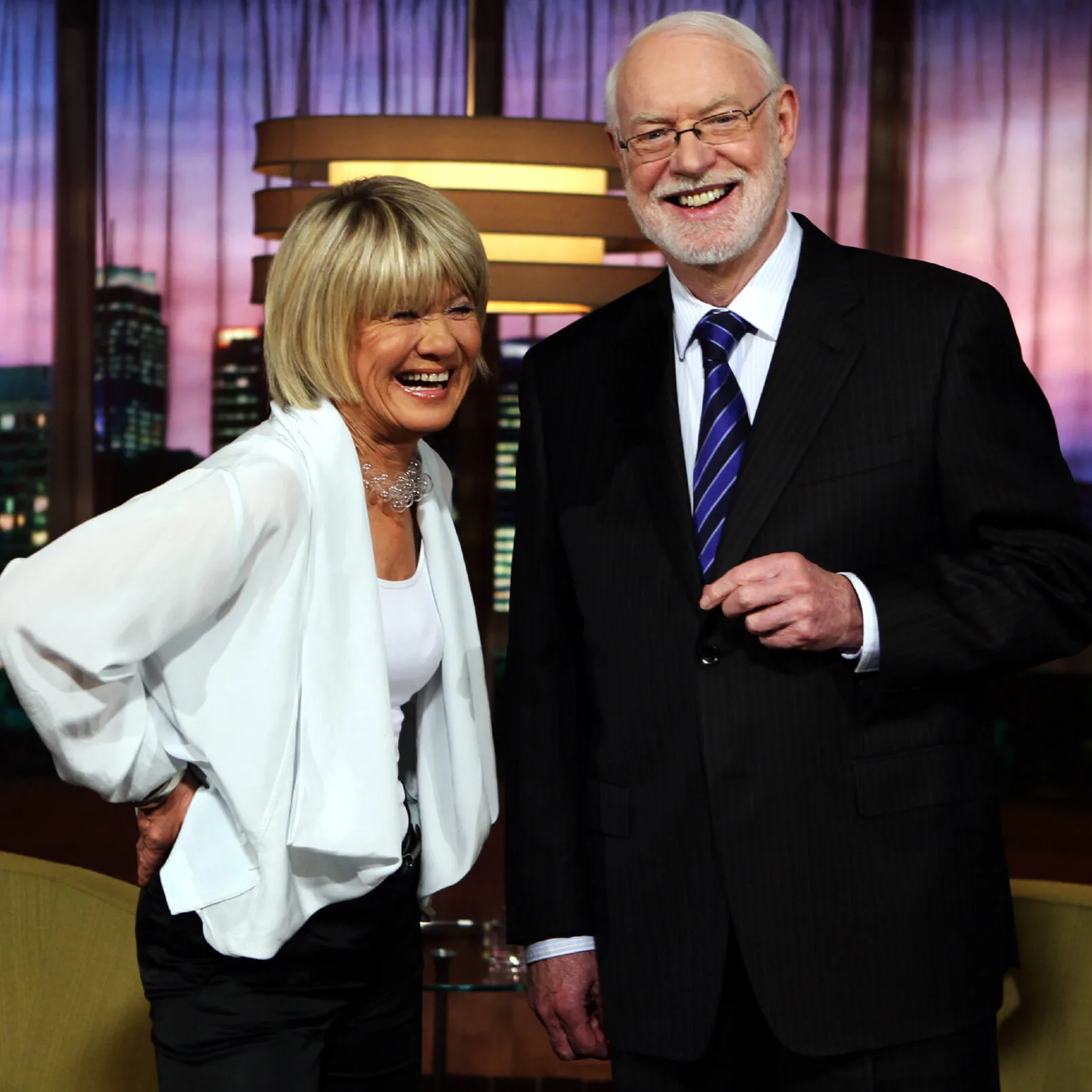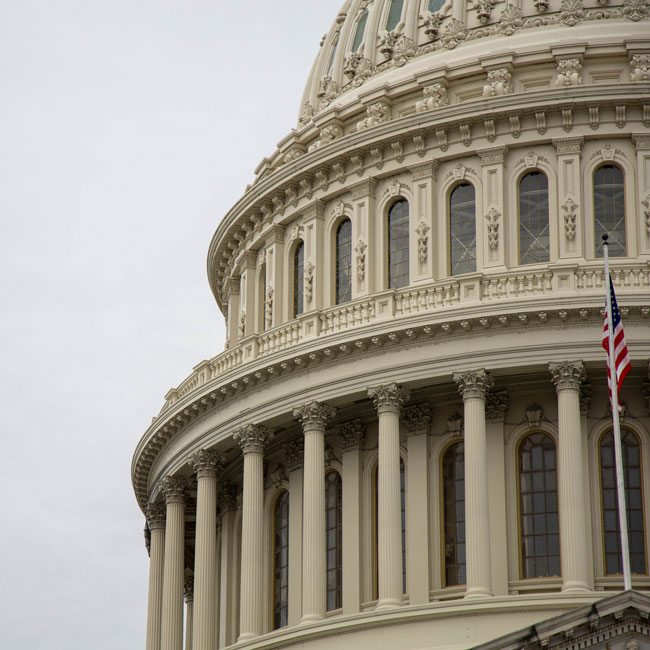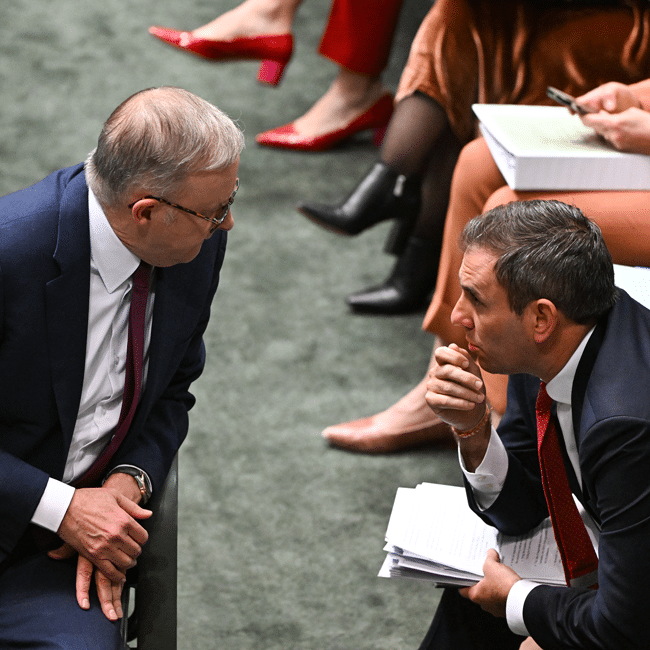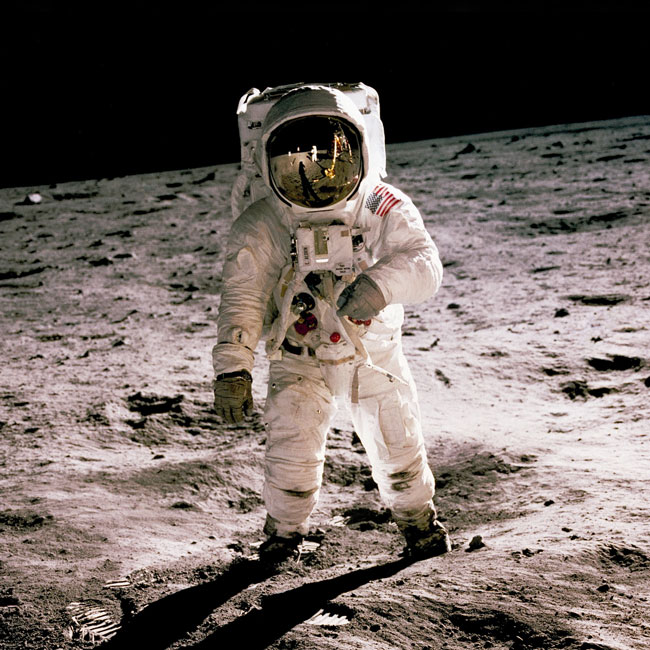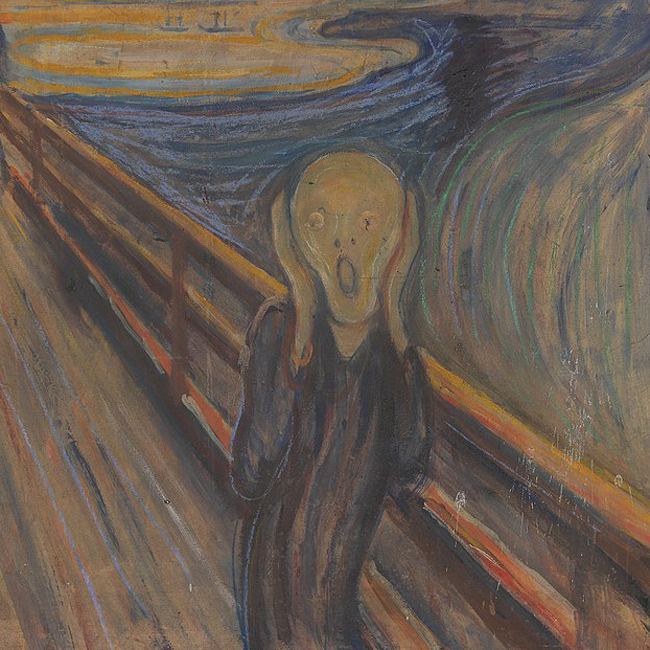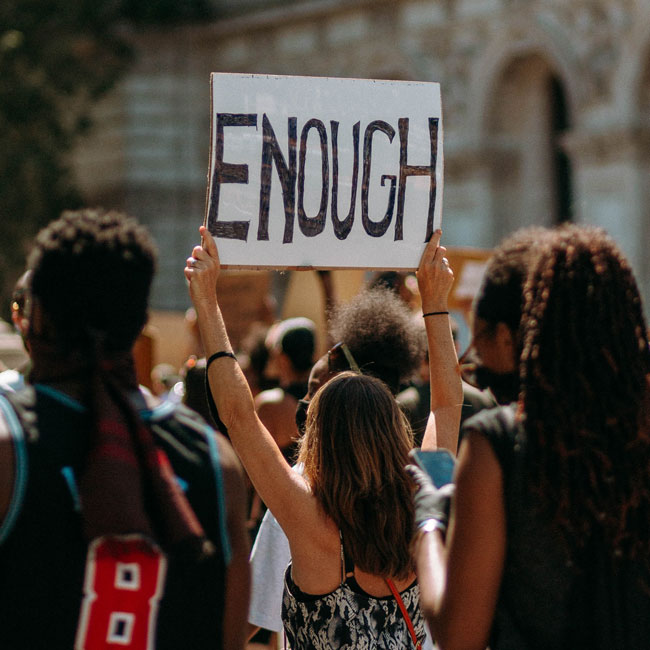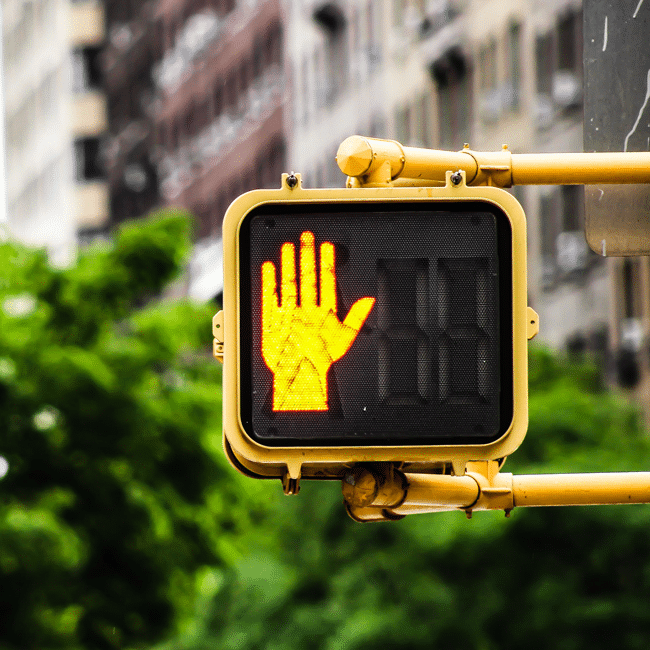When our possibilities seem to collapse
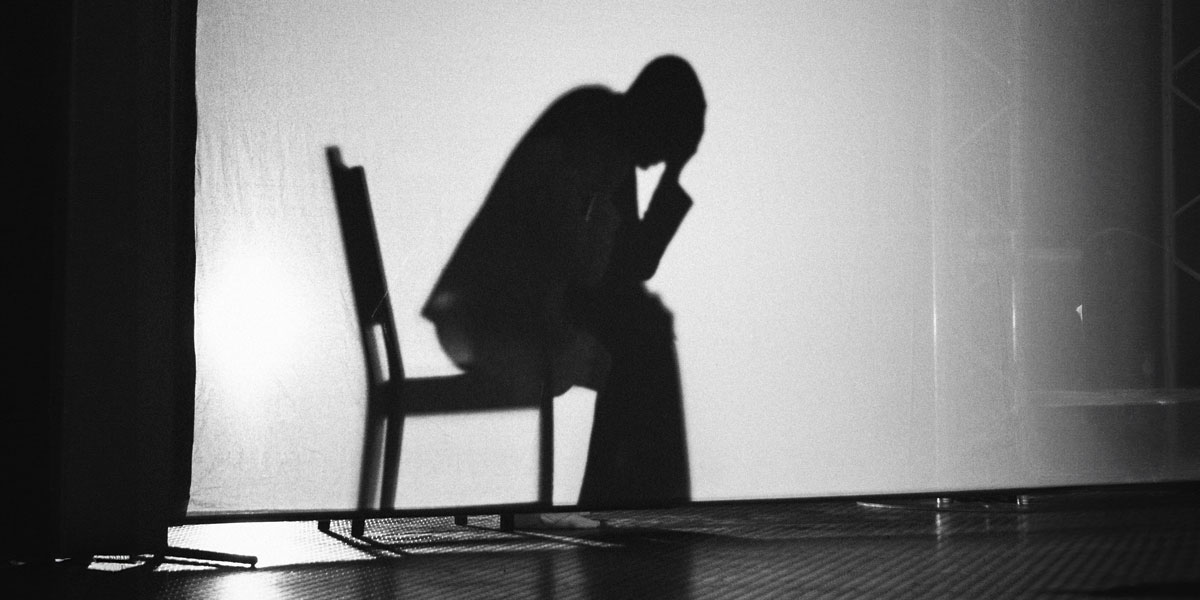
When our possibilities seem to collapse
Opinion + AnalysisPolitics + Human RightsSociety + Culture
BY Simon Longstaff 24 FEB 2025
In recent years, I have had an increasing number of conversations with people who feel overwhelmed by world events.
They describe the world as wracked by multiple crises of a magnitude such that efforts to reform or repair what is broken is simply futile. This attitude is not confined to those who are poor, oppressed or marginalised. This particular feeling seems to be divorced from personal circumstances – with even the privileged experiencing the same grim outlook.
Especially troubling is the fact that this feeling has been building, despite all of the evidence that Earth has become, on average, a safer, more peaceful place. A decreasing percentage of people live in abject poverty. Infant mortality rates are declining. There are fewer famines and more to eat. As a whole, the ‘four horsemen of the Apocalypse’ have been left playing cards in the stable.
Of course, specific individuals and groups still suffer the full panoply of ills that can afflict the human condition. But, overall, things have been getting better at the same time that people have come to believe that the world is a place of deepening doom and gloom.
One can easily think of an explanation for the divergence between reality and perception. First, is the power of individual stories. A compelling narrative of one person’s suffering can easily be taken as representative of the whole. It’s the same general phenomenon that leads us to feel better whenever we encounter a narrative in which the ‘underdog’ triumphs over the more powerful rival. These figures are swiftly ‘universalised’ to the point that any one of us can see our own possibilities reflected in that of the protagonist. So, when our stories tilt from the positive to the negative we are likely to see our view of the world take on a pessimistic hue.
This brings us to the second reason for this negative outlook. Unfortunately, the media (in all its forms) has ‘discovered’ that ‘bad news’ sells. Or to be more precise, bad news attracts and retains an audience in a way that positive news does not. The implications of this ‘insight’ have been grossly magnified by the emergence of social media – with its insatiable drive for eyes, ears, minds, etc. One of the most depressing stories I have heard, in recent years, is of a publisher that monitors every second of a story’s online life. The moment interest begins to flag, I am reliably advised, the instruction is to ‘bait the hook’ with something that implies ‘crisis’. So, what might properly be considered ‘troubling’ is elevated to the point where it feels like an existential threat posing a risk to all. Few remember the details when (almost inevitably) the more mundane truth emerges. What remains is the feeling – and facts rarely disturb established feelings.
These factors (and a host of others – too numerous to mention here) have combined to help generate a creeping sense that one might as well disengage and let the world go to hell in the proverbial ‘handbasket’. Let’s not bring children into a failing world. Let’s limit our attention to things within our span of control (not much). Let’s not vote – it’s pointless …
The deeply disturbing thing about all of this is that the temptation to withdraw because of the perceived futility of engagement gives rise to a self-fulfilling prophecy grounded in that great enemy of democracy; despair.
The truth of democracy (and markets for that matter) is that even the least powerful individual can change the world when working with others. Remarkably, we don’t even have to plan and coordinate for collective action to have a powerful effect. Indeed, one need not be ‘heroic’ (in the ‘Nelson Mandela’ sense) to be an author of momentous events. It’s just that you are unlikely ever to know when your decision or action tilted the world on its axis. Often it just requires a person to fall just a smidgen on the right side of a question. And when enough people do the same, there is progress.
Despair is the absence of hope that this is possible. It is a deceit that makes us fail – not because we never could succeed but because it destroys our belief in the possibility that we can be effective agents for change.
If we succumb to despair, then our possibilities collapse – not because we are powerless but because we believe ourselves to be.
Australia should aspire to be one of the world’s great democracies. It’s in our bones – dating back to South Australia that, in the late nineteenth century, brought into the world the first modern democracy in which all adults could not only vote but take up public office – irrespective of sex, gender, race or creed. For years, the secret ballot was known as the “Australian Ballot’. In 1900, Australia held more patents per head of population than any other country in the world. Yes, there were all the problems of colonisation, racism, sexism and a plethora of wrongs. And yes, we went backward for a while after Federation. But that reality did not give rise to despair.
Things actually can get better. Democracy is the vehicle for doing so; not because it demands so much of us as individuals – but because it demands so little. We just need to allow ourselves a small measure of hope to defeat despair. We need to take just a small, individual step forwards. Do this together, and nothing can stop us.

Ethics in your inbox.
Get the latest inspiration, intelligence, events & more.
By signing up you agree to our privacy policy
You might be interested in…
Opinion + Analysis
Politics + Human Rights, Relationships
We’re being too hard on hypocrites and it’s causing us to lose out
Opinion + Analysis
Health + Wellbeing, Politics + Human Rights, Relationships
People with dementia need to be heard – not bound and drugged
Opinion + Analysis
Society + Culture
Schools of thought: What is education for?
Opinion + Analysis
Relationships, Society + Culture
Bring back the anti-hero: The strange case of depiction and endorsement
BY Simon Longstaff
Simon Longstaff began his working life on Groote Eylandt in the Northern Territory of Australia. He is proud of his kinship ties to the Anindilyakwa people. After a period studying law in Sydney and teaching in Tasmania, he pursued postgraduate studies as a Member of Magdalene College, Cambridge. In 1991, Simon commenced his work as the first Executive Director of The Ethics Centre. In 2013, he was made an officer of the Order of Australia (AO) for “distinguished service to the community through the promotion of ethical standards in governance and business, to improving corporate responsibility, and to philosophy.” Simon is an Adjunct Professor of the Australian Graduate School of Management at UNSW, a Fellow of CPA Australia, the Royal Society of NSW and the Australian Risk Policy Institute.
Let’s cure the cause of society’s ills, and not just treat the symptoms

Let’s cure the cause of society’s ills, and not just treat the symptoms
Opinion + AnalysisBusiness + Leadership
BY Simon Longstaff 25 JUN 2024
The lead up to June 30th, is critically important for organisations, like The Ethics Centre, that depend on tax-deductible donations in order to make ends meet. Every organisation has a compelling claim to make for why their cause is deserving of support.
Some have ‘natural constituencies’ defined by the specific nature of the issue to be addressed. For example, medical research institutes will focus on those touched by the various diseases they work to treat and to cure. Other charities have a clear focus on solving one clearly defined problem, like homelessness, and can point to the specific impact that every dollar of charitable giving can have.
And then there are organisations like The Ethics Centre – where the work ranges across the whole span of human affairs with an impact that may take decades, if ever, to register. Consider this … How do you capture the significance of the countless bad things that did not happen as a direct result of good ethics leading to good decision making?
Yet, ours is a story that needs to be told – again and again. It’s not just a matter of ‘rattling the tin’ in the hope of securing a few more donations. Please believe me when I say we need them – as never before. However, there is also real and growing sense in which the need for ‘ethics’ is growing greater with each passing day.
Poverty, inequality and disadvantage are not ‘natural’ aspects of the human condition. Nor is it inevitable that the earth should be ravaged by our species. Rather, the root cause of social and environmental degradation lies in the character and quality of human choice – the most powerful force on this planet. Knowing this to be so, philosophers have spent millennia working to understand the underlying structure of human choice and how it might be harnessed for good rather than ill. Ethics is the branch of practical philosophy that addresses this question.
Australia stands on the cusp of a brilliant future. It has everything any society could need: vast natural resources, abundant clean energy and an unrivalled repository of wisdom held in trust by the world’s oldest continuous culture supplemented by a richly diverse people drawn from every corner of the planet.
As such, Australia could become the most prosperous and just society the world has ever known. However, whether or not this future can be grasped depends not on our natural resources, our financial capital or our technical nous. The ultimate determinant lies in the public’s willingness to trust those who will lead the process of translating the vision into reality.
Thus, we see the effects of ethical failure not only in its most obvious symptoms. Its corrosive effects can also be seen in the loss of public trust in nearly all of our major public and private institutions. This loss of trust has come at precisely the time when it is most needed – when we should be able to rely on those institutions to help guide society as it navigates a landscape of increasing complexity.
Australia lacks a peak organisation with a mandate to address the major ethical questions of our age. Significant legal questions can be referred to the Australian Law Reform Commission. The Productivity Commission performs a similar function in relation to questions of economic significance. No such body exists to consider ethical questions – such as are encountered on a daily basis. For example: should we deploy lethal autonomous weapons systems? What are the implications of embracing modern manufacturing techniques that will make many existing jobs redundant? Should we be moving to tax consumption and/or the means of production rather than labour so as to preserve the capacity to offer a social ‘safety net’? Is access to a ‘home’ (as opposed to ‘shelter’) a basic human right? And so on …
The Ethics Centre has spent 35 years building the foundations upon which to build a world-first, national Ethics Institute. But, as of today, that still remains a dream. Meanwhile, we have the work of the moment. It includes offering our Ethi-call service, the world’s only free national helpline for people with ethical issues. Its greatest impact is when it helps to prevent the kind of ‘moral injury’ that does so much harm to mental health. And then there are events like the Festival of Dangerous Ideas (FODI) one of the few places left where reasonable people can gather together and engage in the civilising art of ‘principled disagreement’. These are just some of the things we do in order to help bring ethics to the centre of everyday life.
I come back to one central point. If you’d like to address causes over symptoms then please consider supporting ethics. It’s simple: better ethics make for a better world. Even a few dollars can help that to be as true in reality as it is in principle.
With your support, The Ethics Centre can continue to be the leading, independent advocate for bringing ethics to the centre of everyday life in Australia. Click here to make a tax deductible donation today.

Ethics in your inbox.
Get the latest inspiration, intelligence, events & more.
By signing up you agree to our privacy policy
You might be interested in…
Big thinker
Business + Leadership
Big Thinker: Karl Marx
Opinion + Analysis
Business + Leadership
The 6 ways corporate values fail
Opinion + Analysis
Business + Leadership
360° reviews days are numbered
Opinion + Analysis
Business + Leadership
It’s time to consider who loses when money comes cheap
BY Simon Longstaff
Simon Longstaff began his working life on Groote Eylandt in the Northern Territory of Australia. He is proud of his kinship ties to the Anindilyakwa people. After a period studying law in Sydney and teaching in Tasmania, he pursued postgraduate studies as a Member of Magdalene College, Cambridge. In 1991, Simon commenced his work as the first Executive Director of The Ethics Centre. In 2013, he was made an officer of the Order of Australia (AO) for “distinguished service to the community through the promotion of ethical standards in governance and business, to improving corporate responsibility, and to philosophy.” Simon is an Adjunct Professor of the Australian Graduate School of Management at UNSW, a Fellow of CPA Australia, the Royal Society of NSW and the Australian Risk Policy Institute.
Why Anzac Day’s soft power is so important to social cohesion

Why Anzac Day’s soft power is so important to social cohesion
Opinion + AnalysisPolitics + Human Rights
BY Simon Longstaff 25 APR 2024
Any country wishing to advance or defend its strategic interests has recourse to two types of power: hard and soft.
Richard Marles’ release of the government’s most recent Defence Strategic Review, coming as it does just before Anzac Day, provides an opportunity to examine how well Australia is positioned in relation to the oft-neglected “defensive” aspect of soft power.
Any potential adversary knows that a low-risk way to wound a diverse, multicultural society is to pick it apart until it turns against itself. They are right. Look at the cracks that have opened up at home under the strain of a distant war between the state of Israel and Hamas. It has led to a massive rise in antisemitism and a resurgence in Islamophobia.
Indeed, the first thought of many was that the murderous rampage at Bondi Junction was a terrorist attack connected to conflict in the Middle East. Two days later, a surge of communal violence was unleashed in response to the wounding of two clerics in a terrorist incident.
Thanks to good management by police, politicians and community leaders, our worst fears were not realised. However, we should be warned. Malicious actors will have been encouraged by evidence of how easy it would be to ignite the tinder of a larger conflagration. They will be readying themselves to stoke the embers with their weapons of choice: misinformation and disinformation. How can we defend against this?
There are two aspects of soft power in its defensive form that we must deploy now to build resilience for the future. First, we must work to restore trust in our private and public institutions. Second, we need to harness the power of unifying narratives.
The first of these tasks is essential if we are to protect ourselves against the corrosive effects of misinformation and disinformation. Our current approach mostly relies on regulation and surveillance to control the worst of it.
However, a liberal democracy with a commitment to free speech will always fight with the equivalent of one hand tied behind its back. So, we need to work twice as hard; investing in the development of individuals and institutions who can be trusted to offer sound guidance at times when it really matters.
Trustworthiness needs constant effort
When natural disasters strike, we all tend to look to the ABC for critical information – even those who are concerned about the national broadcaster and its editorial stance. Trust in our public institutions should not be the exception. It needs to become the norm. This will happen only if those institutions are consistently trustworthy.
Becoming trustworthy is an acquired skill. It needs constant effort. Trustworthiness is not something that can be produced by anti-corruption commissions, by regulation or surveillance. It requires investment in a positive commitment to ethics.
As a public, we need to know that our leaders merit our trust at times when it really matters. No matter what those dedicated to sowing the seeds of dissension might tell us, no matter what conspiracy theories might be abroad, we need good reason to believe that when it comes to the crunch, our leaders have the knowledge, skills and character to be relied on. In short, we need to invest in the nation’s “ethical infrastructure”.
Second, we need to make far more of our “secular myths”. Like all such stories, their power resides in something larger than the immediate facts. They speak to something deeper – which brings me to Anzac Day. Many nations ground their identity in stories of triumph, whether it be the defeat of an armed foe or the overthrow of an illegitimate or oppressive regime. Anzac Day offers something different.
Those of us who celebrate Anzac Day not only remember the fallen. We also find meaning in a striking example of “noble failure”.
To try your best. To venture all, even if you fail. To maintain honour, even to the end. These are ideals to which anyone can aspire – even if, in reality, we so often fall short.
This ideal is not bound by religion, culture, language or heritage. About 70 First Nations people fought at Gallipoli. The Turks, who won the engagement, still honour what took place – despite the horrors of war. People of all faiths and none have found moments of inspiration in a story that does not glorify war – only the spirit of those “warriors” who try to be and to do their best, even when they fail.
Of course, this is just one narrative. How many others are out there waiting to be deployed for the common good?
We spend billions of dollars on the implements of hard power. But on Anzac Day we should remember its complement – the soft power of a shared ethos that underpins a cohesive society and safety at home.
This article was originally published in The Australian Financial Review.
Ethics in your inbox.
Get the latest inspiration, intelligence, events & more.
By signing up you agree to our privacy policy
You might be interested in…
Opinion + Analysis
Politics + Human Rights, Relationships, Society + Culture
In the face of such generosity, how can racism still exist?
Opinion + Analysis
Politics + Human Rights
The erosion of public trust
Opinion + Analysis
Business + Leadership, Politics + Human Rights, Relationships
Tim Soutphommasane on free speech, nationalism and civil society
Opinion + Analysis
Health + Wellbeing, Politics + Human Rights
Vaccines: compulsory or conditional?
BY Simon Longstaff
Simon Longstaff began his working life on Groote Eylandt in the Northern Territory of Australia. He is proud of his kinship ties to the Anindilyakwa people. After a period studying law in Sydney and teaching in Tasmania, he pursued postgraduate studies as a Member of Magdalene College, Cambridge. In 1991, Simon commenced his work as the first Executive Director of The Ethics Centre. In 2013, he was made an officer of the Order of Australia (AO) for “distinguished service to the community through the promotion of ethical standards in governance and business, to improving corporate responsibility, and to philosophy.” Simon is an Adjunct Professor of the Australian Graduate School of Management at UNSW, a Fellow of CPA Australia, the Royal Society of NSW and the Australian Risk Policy Institute.
Access to ethical advice is crucial

Access to ethical advice is crucial
Opinion + AnalysisBusiness + LeadershipSociety + Culture
BY Simon Longstaff Major General Paul Symon Dr Miah Hammond-Errey 19 MAR 2024
Better ethical approaches for individuals, businesses and organisations doesn’t just make moral sense. The financial benefits are massive, too.
It might seem a little ironic to take ethics advice from an intelligence agency that consciously deploys deception, yet it shows why access to ethical advice is vitally important. Indeed, we argue that the example of an ethics counsellor within ASIS demonstrates why every organisation should have (access to) an ethical adviser.
Ethics is often considered to be a personal or private activity, in which an individual makes decisions guided by an ethical code, compass or frame of reference. However, emerging technologies necessitate consideration of how ethics apply “at scale”.
Whether we are conscious of this (or not), ethical decisions are being made at the “back end” – or programming phase – but may not be visible until an outcome or decision, or user action, is reached at the other end of the process.
Miah Hammond-Errey describes in her book, Big Data, Emerging Technologies and Intelligence: National Security Disrupted, how “ethics at scale” is being driven by algorithms that seek to replicate human decision-making processes.
This includes unavoidable ethical dimensions, at increasing levels of speed, scope and depth – often in real time.
The concept of ethics at scale means that the context and culture of the companies and countries that created each algorithm, and the data they were trained on, increasingly shapes decisions at an individual, organisation and nation-state level.
Emerging technologies are likely to be integrated into work practices in response to the world itself becoming more complex. Yet, those same technologies may themselves make the ethical landscape even more complex and uncertain.
The three co-authors recently discussed the nexus of ethics, technology and intelligence, concluding there are three essential elements that must be acknowledged.
First, ethics matter. They are not an optional extra. They are not something to be “bolted on” to existing decision-making processes. Ethics matter: for our own personal sense of peace, to maximise the utility of new technologies, for social cohesion and its contribution to national security and as an expression of the values and principles we seek to uphold as a liberal democracy.
Second, there is a strong economic case for investing in the ethical infrastructure that underpins trust in and the legitimacy of our public and private national intuitions. A 10 per cent improvement in ethics in Australia is estimated to lead to an increase in the nation’s GDP of $45 billion per annum. This research also shows improving the ethical reputation of a business can lead to a 7 per cent increase in return on investment. A 10 per cent improvement in ethical behaviour is linked with a 2.7 to 6.6 per cent increase in wages.
Third, ethical challenges are only going to increase in depth, frequency and complexity as we integrate emerging technologies into our existing social, business and government structures. Examples of areas already presenting ethical risk include: using AI to summarise submissions to government, using algorithms to vary pricing for access to services for different customer segments or perhaps using new technologies to identify indicators of terrorist activity. That’s before we even get to novel applications employing neurotechnology such as brain computer interfaces.
Ethical challenges are, of course, not new. Current examples driven by new and emerging technologies include privacy intrusion, data access, ownership and use, increasing inequality and the impact of cyber physical systems.
However, an extant need for ethical rumination is, for now at least, a human endeavour.
As a senior leader of ASIS, with a background in the military, Major General Paul Symon (retd) strongly supported resourcing a (part-time) ethics counsellor. He was aware the act of cultivating agents, and the tradecraft involved, would inevitably demand moral enquiry by the most accomplished ASIS officers.
His belief was without a solid understanding of ethics, there was no standard against which the actions of the profession, or the choices of individuals, could be measured.
So, a relationship emerged with the Ethics Centre. A compact of sorts. Any officer facing an ethical dilemma was encouraged to speak confidentially to the ethics counsellor. The conversation and the moral reasoning were important.
General Symon guaranteed no career detriment to anyone who “opted out” of an activity so long as they had fleshed out their concerns with the ethics counsellor. Often, an officer’s concerns were allayed following discussion, and they proceeded with an activity knowing there was a justification both legally and ethically.
Perhaps if we’d had ethical advisers available across other institutions, we might have prevented some of the greatest moral failures of recent times, such as the pink batts deaths and robodebt.
If we had ethical advisers accessible to industry, then perhaps we’d have avoided the kind of misconduct revealed in multiple royal commissions looking into everything from banking and finance to the treatment of veterans to aged care.
We believe our work over years, including examples in defence and intelligence, demonstrates practical examples and the requirement to build our national capacity for ethical decision-making supported by sound, disinterested advice. That is one reason we support the establishment of an Australian Institute for Applied Ethics with the independence and reach needed to work with others in lifting our national capacity in this area.
Pledge your support for an Australian Institute of Applied Ethics. Sign your name at: https://ethicsinstitute.au/
This article was originally published in The Canberra Times.

Ethics in your inbox.
Get the latest inspiration, intelligence, events & more.
By signing up you agree to our privacy policy
You might be interested in…
Opinion + Analysis
Business + Leadership
The dark side of the Australian workplace
Opinion + Analysis
Business + Leadership
Activist CEO’s. Is it any of your business?
Opinion + Analysis
Business + Leadership, Relationships
Corporate whistleblowing: Balancing moral courage with moral responsibility
Opinion + Analysis
Business + Leadership
‘Hear no evil’ – how typical corporate communication leaves out the ethics
BY Simon Longstaff
Simon Longstaff began his working life on Groote Eylandt in the Northern Territory of Australia. He is proud of his kinship ties to the Anindilyakwa people. After a period studying law in Sydney and teaching in Tasmania, he pursued postgraduate studies as a Member of Magdalene College, Cambridge. In 1991, Simon commenced his work as the first Executive Director of The Ethics Centre. In 2013, he was made an officer of the Order of Australia (AO) for “distinguished service to the community through the promotion of ethical standards in governance and business, to improving corporate responsibility, and to philosophy.” Simon is an Adjunct Professor of the Australian Graduate School of Management at UNSW, a Fellow of CPA Australia, the Royal Society of NSW and the Australian Risk Policy Institute.
BY Major General Paul Symon
Major General Paul Symon (retd) is a former director-general of the Australian Secret Intelligence Service.
The Ethics Institute: Helping Australia realise its full potential

The Ethics Institute: Helping Australia realise its full potential
Opinion + AnalysisBusiness + LeadershipSociety + Culture
BY Simon Longstaff 11 MAR 2024
It has been some three years since we posed a simple question: to what extent (if any) does ethics affect the economy?
The team we asked to answer that question was led by the economist, John O’Mahony of Deloitte Access Economics. After a year spent analysing the data, the answer was in. The quality of a nation’s ethical infrastructure has a massive impact on the economy. For Australia, a mere 10% improvement in ethics – across the nation – would produce an uplift on GDP of $45 billion per annum. Yes, that’s right, a decade later the accrued benefit would be $450 billion – and growing!
Some things are too good to be true. This is not one of them.
The massive economic impact is a product of a very simple formula: increased ethics=increased trust=lower costs and higher productivity. Increasing trust is the key. Not least because without it, every case for reform will either fall short or fail … no matter how compelling. Ordinary Australians going about their lives simply will not allow reform when they believe that the benefits and especially the burdens of change will be unfairly distributed. So it is that the incredible potential of our nation is held hostage to factors that are entirely within our control.
We invest billions in physical and technical infrastructure in the hope that it will lead to improvement in our lives. We invest almost nothing in the one form of infrastructure that determines how well these other investments will perform. That is, we invest precious little in our ethical infrastructure.
My first reaction to receiving the Deloitte Access Economics report was to try to engage with the Federal Government of the day. I thought that whatever one might think about ‘ethics’ as a concept, there could be no ignoring the economics. I was wrong. The message came back that the government was “positively not interested” in discussing the findings or their implications. I have met with rejection and (more often) indifference on many occasions over the past thirty years. This ranks at the top of my list of negative responses.
The Ethics Centre has always been resolutely apolitical. So, we cast around to find someone in the then Federal Opposition who might engage with the findings. And that is where the current Treasurer, Dr Jim Chalmers, comes in. He took the findings very seriously – so much so that he issued a further challenge to identify what specific measures would increase ethics by 10% and thus, produce the estimated economic uplift. That led to a second piece of work by Deloitte Access Economics – and nine months later, we received the second report. It is that report that has brought forth the current proposal to establish the world-first Australian Institute for Applied Ethics.
The proposed Institute will have two core functions: first, it will be a source of independent advice. Legal issues are referred to the Australian Law Reform Commission. Economic issues are sent to the Productivity Commission. As things stand, there is nowhere to refer the major ethical issues of our times. Second, the Institute will work with existing initiatives and institutions to improve the quality of decision making in all sectors of life and work in Australia. It is important to note here that the Institute will neither replace or displace what is already working well. The task will be to ‘amplify’ existing efforts. And where there is a gap, the Institute will stimulate the development of missing or broken ethical infrastructure.
Above all, such an Institute needs to be independent. That is why we are seeking to replicate the funding model that led to the establishment of the Grattan Institute – by establishing a capital base with a mixture of funds from the private sector and a one-off grant of $33.3 million from the Federal Government.
The economic case for making such an investment is undeniable. The research shows that better ethics will support higher wages and improved performance for companies. Better ethics also helps to alleviate cost of living pressures by challenging predatory pricing practices – and other conduct that is not controlled in a market dominated by oligopolies and consumers who find it hard to ‘shop around’.
But what most excites The Ethics Centre, and our founding partners at the University of NSW and the University of Sydney, is the chance for Australia to realise its potential to become one of the most just and prosperous democracies that the world has ever known. With our natural resources, vast reserves of clean energy and remarkable, diverse population – we have everything to gain … and nothing to lose by aspiring to be just a little bit better tomorrow than we have been today.
And that is why something truly remarkable has happened. ACOSS, the ACTU, BCA and AICD have all come together in a rare moment of accord. Support is growing across the Federal Parliament. Australians from all walks of life – are adding their names in support of an idea whose time has come.
All we need now is our national government to make an investment in a better Australia.
Pledge your support for an Australian Institute of Applied Ethics. Sign your name at: https://ethicsinstitute.au/

Ethics in your inbox.
Get the latest inspiration, intelligence, events & more.
By signing up you agree to our privacy policy
You might be interested in…
Opinion + Analysis
Society + Culture
Critical thinking in the digital age
Opinion + Analysis
Business + Leadership, Climate + Environment, Relationships
ESG is not just about ticking boxes, it’s about earning the public’s trust
Opinion + Analysis
Society + Culture
What are we afraid of? Horror movies and our collective fears
Explainer
Business + Leadership
Ethics Explainer: Social license to operate
BY Simon Longstaff
Simon Longstaff began his working life on Groote Eylandt in the Northern Territory of Australia. He is proud of his kinship ties to the Anindilyakwa people. After a period studying law in Sydney and teaching in Tasmania, he pursued postgraduate studies as a Member of Magdalene College, Cambridge. In 1991, Simon commenced his work as the first Executive Director of The Ethics Centre. In 2013, he was made an officer of the Order of Australia (AO) for “distinguished service to the community through the promotion of ethical standards in governance and business, to improving corporate responsibility, and to philosophy.” Simon is an Adjunct Professor of the Australian Graduate School of Management at UNSW, a Fellow of CPA Australia, the Royal Society of NSW and the Australian Risk Policy Institute.
AI might pose a risk to humanity, but it could also transform it

AI might pose a risk to humanity, but it could also transform it
Opinion + AnalysisScience + TechnologyBusiness + LeadershipSociety + Culture
BY Simon Longstaff 27 FEB 2024
It’s no secret that the world’s largest and most powerful tech companies, including Google, Amazon, Meta and OpenAI, have a single-minded focus on creating Artificial General Intelligence (AGI). Yet we currently know as little about what AGI might look like as we do about the risks that it might pose to humanity.
It is essential that debates around existential risk proceed with an urgency that tries to match or eclipse the speed of developments in the technology (and that is a tall order). However, we cannot afford to ignore other questions – such as the economic and political implications of AI and robotics for the world of work.
We have seen a glimmer of what is to come in the recent actors’ industrial action in Hollywood. While their ‘log of claims’ touched on a broad range of issues, a central concern related to the use of Generative AI. Part of that central concern focused on the need to receive equitable remuneration for the ongoing use of digital representations of real, analogue (flesh and blood) people. Yet, their deepest fear is that human actors will become entirely redundant – replaced by realistic avatars so well-crafted as to be indistinguishable from a living person.
Examples such as this easily polarise opinion about the general trajectory of change. At one end of the spectrum are the optimists who believe that technological innovation always leads to an overall increase in employment opportunities (just different ones). At the other end are the pessimists who think that, this time, the power of the technology is so great as to displace millions of people from paid employment.
I think that the consequences will be far more profound than the optimists believe. Driven by the inexorable logic of capitalism, I cannot conceive of any business choosing to forgo the efficiency gains that will be available to those who deploy machines instead of employing humans. When the cost of labour exceeds the cost of capital the lower cost option will always win in a competitive environment.
For the most part, past technical innovation has tended to displace the jobs of the working class – labourers, artisans, etc. This time around, the middle class will bear at least as much of the burden. Even if the optimists are correct, the ‘friction’ associated with change will be an abrasive social and political factor. And as any student of history knows, few political environments are more explosive than when the middle class is angry and resentful. And that is just part of the story. What happens to Australia’s tax base when our traditional reliance on taxing labour yields decreasing dividends? How will we fund the provision of essential government services? Will there be a move to taxing the means of production (automated systems), an increase in corporate taxes, a broadening of the consumption tax? Will any of this be possible when so many members of the community are feeling vulnerable? Will Australia introduce a Universal Basic Income – funded by a large chunk of the economic and financial dividends driven by automation?
None of this is far-fetched. Advanced technologies could lead to a resurgence of manufacturing in Australia – where our natural advantages in access to raw materials, cheap renewable energy and proximity to major population areas could see this nation become one of the most prosperous the world has ever known.
Can we imagine such a future in which the economy is driven by the most efficient deployment of capital and machines – rather than by productive humans? Can we imagine a society in which our meaning and worth is not related to having a job?
I do not mean to suggest that there will be a decline in the opportunity to spend time undertaking meaningful work. One can work without having ‘a job’; without being an employee. For as long as we value objects and experiences that bear the mark of a human maker, there will be opportunities to create such things (we already see the popularity of artisanal baking, brewing, distilling, etc.). There is likely to be a premium placed on those who care for others – bringing a uniquely human touch to the provision of such services. But it is also possible that much of this work will be unpaid or supported through barter of locally grown and made products (such as food, art, etc.).
Can we imagine such a society? Well, perhaps we do not need to. Societies of this kind have existed in the past. The Indigenous peoples of Australia did not have ‘jobs’, yet they lived rich and meaningful lives without being employed by anyone. The citizens of Ancient Athens experienced deep satisfaction in the quality of their civic engagement – freed to take on this work due to the labour of others bound by the pernicious bonds of slavery. Replace enslaved people with machines and might we then aspire to create a society just as extraordinary in its achievements?
We assume that our current estimation of what makes for ‘a good life’ cannot be surpassed. But what if we are stuck with a model that owes more to the demands of the industrial revolution than to any conception of what human flourishing might encompass?
Yes, we should worry about the existential threat that might be presented by AI. However, worrying about what might destroy us is only part of the story. The other part concerns what kind of new society we might need to build. This second part of the story is missing. It cannot be found anywhere in our political discourse. It cannot be found in the media. It cannot be found anywhere. The time has come to awaken our imaginations and for our leaders to draw us into a conversation about whom we might become.
Want to increase our ethical capacity to face the challenges of tomorrow? Pledge your support for an Australian Institute of Applied Ethics. Sign your name here.

Ethics in your inbox.
Get the latest inspiration, intelligence, events & more.
By signing up you agree to our privacy policy
You might be interested in…
Opinion + Analysis
Society + Culture
David and Margaret spent their careers showing us exactly how to disagree
Opinion + Analysis
Business + Leadership
The truth isn’t in the numbers
Opinion + Analysis
Relationships, Society + Culture
How can you love someone you don’t know? ‘Swarm’ and the price of obsession
Opinion + Analysis
Business + Leadership, Politics + Human Rights
No justice, no peace in healing Trump’s America
BY Simon Longstaff
Simon Longstaff began his working life on Groote Eylandt in the Northern Territory of Australia. He is proud of his kinship ties to the Anindilyakwa people. After a period studying law in Sydney and teaching in Tasmania, he pursued postgraduate studies as a Member of Magdalene College, Cambridge. In 1991, Simon commenced his work as the first Executive Director of The Ethics Centre. In 2013, he was made an officer of the Order of Australia (AO) for “distinguished service to the community through the promotion of ethical standards in governance and business, to improving corporate responsibility, and to philosophy.” Simon is an Adjunct Professor of the Australian Graduate School of Management at UNSW, a Fellow of CPA Australia, the Royal Society of NSW and the Australian Risk Policy Institute.
Political promises and the problem of ‘dirty hands’

Political promises and the problem of ‘dirty hands’
Opinion + AnalysisPolitics + Human RightsBusiness + Leadership
BY Simon Longstaff 6 FEB 2024
The decision by the Albanese Government to amend the form of the ‘Stage Three Tax Cuts’ – in breach of a much-repeated election promise – has not only unleashed the predictable storm of criticism from the Federal Opposition. More seriously, it has once again raised the question of integrity in politics. Yet, this is a rare case where a broken promise is in the public interest.
The making and breaking of political promises have a special significance in democracies like Australia. Governments derive their legitimacy from the consent of the governed – and consent is meaningless if it is the product of misleading or deceptive information. That is why politicians who deliberately lie in order to secure power should be denied office. It is also why prospective governments should be extremely cautious when making risky promises.
Yet, to argue that ‘keeping promises’ is an essential aspect of building and maintaining trust and legitimacy does not entail that a promise must be kept under any and every circumstance. There may be times when it is literally impossible to keep one’s word – for example, when a government commits to build a facility in a specific location that is later destroyed in a flood. And then there are circumstances where the context is so fundamentally altered as to make the keeping of a promise an act of folly or worse, irresponsibility. President Zelensky is bound to have made many promises to the people of Ukraine prior to the Russian invasion – at least some of which it would be irresponsible to keep in the middle of a war that threatens the very existence of the State.
Some people – notably those who adopt consequentialist forms of ethical reasoning – will argue that a promise should always be broken if, by doing so, a superior outcome is achieved. Others – notably those who place a higher value on acting in conformance with duty (irrespective of the consequences) – will argue that promises should never be broken. I am not inclined to line up with the ‘purists’ on either side. Instead, I prefer an approach in there is acceptance – across the political spectrum – that:
- There is a clear presumption in favour of keeping promises.
- Promises may be broken, but with extreme reluctance, when genuinely in the public interest to do so. That is the breach cannot be justified because it advances the private political interests of an individual or party.
- Any breach must be only to the extent necessary to realise the public interest – and no more.
- Those who break a promise should publicly acknowledge that to do so is wrong and that they are responsible for this choice. That is, they should not seek to deny or lessen the ethical significance of their choice.
Let’s consider how these criteria might be applied in the case of the ‘Stage Three Tax Cuts’.
The key question concerns whether or not it is demonstrably in the public interest to amend the legislated package as it stands. This question cannot be answered by looking at the economic and social implications alone. There is a real risk that trust in government will be eroded – even amongst those who benefit from the changes. And that further erosion in the ‘ethical infrastructure’ of the nation harms us all – not least because of its own tangible economic effects. So, that fact must be weighed in the balance when evaluating the public interest. However, Australia’s ethical infrastructure is also weakened by widening inequality – and by a growing sense of desperation amongst those who feel that their struggles are as much a product of unfairness as they are of forces beyond anyone’s control.
We should never forget that the current cost of living crisis is a form of ethical failure. It was neither inevitable nor necessary. At its root lie the choices made by those who control the levers of economic and political power. As things stand, the community does not trust them to ensure an equitable distribution of burdens and benefits. That widespread popular sentiment is reinforced by daily experience. Ethics – which deals with the way in which choices shape the world we experience – lies at the heart of the current crisis.
So, if changes to the ‘Stage Three Tax Cuts’ can be shown to tilt the table in favour of a more fair and equal Australia, it will have a strong claim to be in the public interest – not least by demonstrating that power can be exercised for the good of all rather than the influential few. Thus, some measure of trust and democratic legitimacy might be restored.
Two final points. First, even with the changes, every Australian taxpayer will continue to be better off than the day before the changes come into effect. To that extent, the policy satisfies the third of the conditions listed above.
Which brings me to the final test: will the Prime Minister and his colleagues accept that the breaking of a political promise is wrong-in-itself – even if necessary to advance the public interest? That would be the brave thing to do. It would involve Anthony Albanese in acknowledging one of the toughest problems in political philosophy – the problem of ‘dirty hands’. This is when a person of principle, as Albanese clearly is, decides to accept the burden of violating their own, deepest ethical sense for the good of others. Then their sense of the moral injury they do to themselves exceeds the bounds of all criticism directed to them by others. They are wounded – and they let us see this.
I believe Anthony Albanese when he says that ‘his word is his bond’. Now, he must own this commitment and acknowledge the cost he and his government must bear in serving the public interest. That will not spare him the pointed criticism of political opponents or of those who sincerely feel their trust betrayed or their interests diminished. However, that honest reckoning is the sacrifice a good person must sometimes make in order better to serve the people.
Image by Mick Tsikas, AAP Photo

Ethics in your inbox.
Get the latest inspiration, intelligence, events & more.
By signing up you agree to our privacy policy
You might be interested in…
WATCH
Politics + Human Rights
James C. Hathaway on the refugee convention
Opinion + Analysis
Business + Leadership
Businesses can’t afford not to be good
Opinion + Analysis
Business + Leadership, Relationships
Employee activism is forcing business to adapt quickly
Opinion + Analysis
Business + Leadership, Science + Technology
One giant leap for man, one step back for everyone else: Why space exploration must be inclusive
BY Simon Longstaff
Simon Longstaff began his working life on Groote Eylandt in the Northern Territory of Australia. He is proud of his kinship ties to the Anindilyakwa people. After a period studying law in Sydney and teaching in Tasmania, he pursued postgraduate studies as a Member of Magdalene College, Cambridge. In 1991, Simon commenced his work as the first Executive Director of The Ethics Centre. In 2013, he was made an officer of the Order of Australia (AO) for “distinguished service to the community through the promotion of ethical standards in governance and business, to improving corporate responsibility, and to philosophy.” Simon is an Adjunct Professor of the Australian Graduate School of Management at UNSW, a Fellow of CPA Australia, the Royal Society of NSW and the Australian Risk Policy Institute.
On truth, controversy and the profession of journalism

On truth, controversy and the profession of journalism
Opinion + AnalysisPolitics + Human RightsSociety + Culture
BY Simon Longstaff 25 JAN 2024
The recent dispute between Antoinette Lattouf and the ABC has brought into focus the need to address some fundamental questions about the role of journalism, in general, and professional journalists, in particular.
In my opinion, journalism is (or at least should be) practiced as a profession. This is not to ignore the fact that journalists work within an intensely commercial environment. But so do those lawyers, accountants, engineers, doctors and others who are employed by the private sector. For members of these professions, the fact that they work for, say, ‘industry’ in no way reduces the scope or depth of their professional obligations.
What marks out a profession is first, that its members are obliged to subordinate self-interest in the service of a public good. For example, as Officers of the Court, lawyers are bound by a paramount duty to assist in the administration of justice. This obligation comes before any duty to the client, to the profession or to oneself. Second, each profession exists in relation to its own ‘defining good’. Doctors and nurses work to secure the public good of ‘health’. Members of the profession of arms are supposed to secure the defining good of ‘peace’. Engineers aim for safety, etc. Two professions are oriented towards the good of ‘truth’ – accounting and journalism.
In both cases, the value of ‘truth’ is not in any sense vague or abstract. The preparation of accounts that are ‘true and fair’ is essential to the operation of free markets in which participants make informed decisions. As Adam Smith understood so well, markets can never be ‘free’ if participants lie, cheat, or use power oppressively. Yet, Smith also knew that merchants were always liable to employ such tactics in pursuit of self-interest. Thus, the need for the profession of accounting – made up of people who freely choose to abandon the pursuit of self-interest in service of the public interest and a higher ‘good’.
The role that accountants play in markets is mirrored by the role that journalists play in politics – and especially in democracies. The legitimacy of liberal democracies rests entirely on the consent of the governed. The only consent that counts is that which is free, prior and informed. And consent can never be informed if it is based on lies. That is why those politicians who resort to falsehood in the pursuit of power do so much damage to our democracy.
Unfortunately, just as some merchants can be relied upon to resort to deception in the pursuit of profits, so can some politicians be relied upon to do the same in the pursuit of victory. Professional journalists are supposed to help protect society from that risk – which is why they are so often lauded as the ‘fourth estate’.
I realise that there are some people who claim the title of ‘journalist’ while playing their own part in publishing or broadcasting falsehood, or who lack the ‘disinterested gaze’ that should be demanded of members of this profession. Yet, the fact that some (or even many) fail to uphold professional standards does not mean that the standard is either wrong or pointless.
Now, one might hope that those in charge of the ABC would champion the ideal of professional journalism as outlined above. If so, then you might also hope that they understood what is entailed by commitment to such an ideal. Finally, one might hope that the ABC would have discerned that a core commitment to the truth is fundamentally incompatible with the avoidance of controversy. Put simply, the truth is often controversial – especially when it challenges conventional belief or confronts power (which can reside in ‘settled’ ideas and prejudice as much as in the hands of individuals and institutions).
The truth is often controversial – especially when it challenges conventional belief or confronts power.
That is where I think the ABC ran off the rails. The moment it elevated the ‘avoidance of controversy’ as an end in itself, it set a standard that it is simply impossible for any professional journalist to uphold.
The noted German philosopher, Immanuel Kant, argued that “ought implies can”. That is, one is not morally obliged to do that which is impossible. This clearly applies in cases of actual impossibility (e.g. flying to Mars on the back of a bandicoot). However, I think the maxim also extends to cases where something is ‘impossible’ to do without violating the dictates of a well-informed (and well-formed) conscience. It is in this sense that professional journalists are placed in an impossible position if required to seek and publish the truth without ever courting controversy.
Image by Pat M2007

Ethics in your inbox.
Get the latest inspiration, intelligence, events & more.
By signing up you agree to our privacy policy
You might be interested in…
Opinion + Analysis
Society + Culture
Who’s afraid of the Big Bad Wolf? The story of moral panic and how it spreads
Opinion + Analysis
Politics + Human Rights
Australia’s ethical obligations in Afghanistan
Reports
Politics + Human Rights
Ethical by Design: Evaluating Outcomes
Opinion + Analysis
Politics + Human Rights
Ethics Explainer: Freedom of Speech
BY Simon Longstaff
Simon Longstaff began his working life on Groote Eylandt in the Northern Territory of Australia. He is proud of his kinship ties to the Anindilyakwa people. After a period studying law in Sydney and teaching in Tasmania, he pursued postgraduate studies as a Member of Magdalene College, Cambridge. In 1991, Simon commenced his work as the first Executive Director of The Ethics Centre. In 2013, he was made an officer of the Order of Australia (AO) for “distinguished service to the community through the promotion of ethical standards in governance and business, to improving corporate responsibility, and to philosophy.” Simon is an Adjunct Professor of the Australian Graduate School of Management at UNSW, a Fellow of CPA Australia, the Royal Society of NSW and the Australian Risk Policy Institute.
A note on Anti-Semitism

I was recently proud to join hundreds of others in signing an open letter condemning Anti-Semitism, Islamophobia and all other forms of discrimination.
The fact that such a letter needed to be written is deeply troubling. However, the world has been witness to the horrific consequences of remaining silent when the beast of race-based hatred begins to stir.
The great attraction of the statement I signed lay in its embrace of a positive principle that extends to every person – irrespective of their identity, conduct or circumstances. The principle of ‘respect for persons’ is the foundation upon which all human rights ultimately rest. It is an affirmation that every person has an irreducible, intrinsic dignity that cannot be reduced or forfeited. Although the rising incidence of Anti-Semitism may have prompted the statement, its concern extends to all who are at risk of harm.
Yet, what exactly is this harm? And how do we properly distinguish between vile acts of Anti-Semitism, on the one hand, and mere criticism on the other? For example, is holding Hamas accountable for the death of innocent non-combatants either ‘Anti-Palestinian’ or ‘Islamophobic? I think not. Nor is it Anti-Semitic to hold the State of Israel to account for acting in conformance with the laws of armed conflict. Both can be held accountable to the same standard without denying the intrinsic dignity of any individual or group.
Expressing sympathy for the plight of ordinary Palestinians, caught in the crossfire of an historically intractable dispute, does not amount to Anti-Semitism. Nor is it ‘genocidal’ to support the existence of the State of Israel (even while condemning many of the actions of its government).
Anti-Semitism is a very distinctive and potent form of evil. It denies the full and equal humanity of Jewish people – and endorses the destruction of their religion, culture, history and bodies. It has its own recognisable symbols – the Nazi Swastika, the ‘Heil Hitler’ salute (and associated symbology) – and revels in the despicable iconography of gas chambers and other elements in the apparatus of the Holocaust. It should be monitored and restrained with every ounce of energy and vigilance we can bring to bear. For where Anti-Semitism lives so there breeds all the other cesspools of hatred and despair.
So, it is unbearably sad when people loosely apply the label ‘Anti-Semitic’ on any occasion where Jewish people experience even the slightest form of annoyance, anger or discomfort.
We have been witness to an example of such ‘fast and loose’ language in the last couple of days. The ‘trigger’ incident was a decision by three actors to wear Palestinian Keffiyeh during the curtain call for Sydney Theatre Company’s opening performance of Chekhov’s The Seagull. The actors took this action without STC’s knowledge and without the support of the other cast members. Whether one agrees with the sentiment behind that statement is beside the point. In practice, they hijacked the company’s stage to make an entirely private, political statement. Now everyone else is left to pick up the pieces.
STC’s audience, supporters and donors are entitled to be annoyed by what occurred. So are the Board, management and members of the STC who had no knowledge of the planned stunt. Yet, nothing that was done on the night amounts to an act of Anti-Semitism. Naïve, perhaps. Unauthorised … certainly! Anti-Semitic … not at all.
To apply that label in the current circumstances is understandable when one considers the raw nerves and ancestral fears that are chafed in response to rising incidents of actual Anti-Semitism. However, over-reacting in this case (or others like it) brings about its own damage – especially when one part of our diverse, multicultural community bands together to boycott (‘cancel’) what it finds offensive. This approach did not help the cause of Christians and Muslims who have sought to censor those who offend or criticise. And I doubt that it will help the Jewish community. A diverse and vibrant community is made to seem monolithic in its outlook and concerns – separate from the whole.
I do not know if there are any Anti-Semites working at STC. However, I would be amazed if there were not at least some ardent critics of Israel (as there are amongst many Jewish people – the world over). But to be a critic of Israel is not the same as being an ‘Anti-Semite’. Of course, one can be both – but the distinction is vital and we all need to discern and apply the difference
Jewish people have every right to speak out when offended (a right we all enjoy). In doing so, they are often driven by fears grounded in millennia of persecution culminating in the Nazi’s ‘final solution’.
We should never be silent or indifferent in the face of Anti-Semitism. However, I fear that being fast and loose in labelling events and people as ‘Anti-Semitic’ risks undermining the significance of that terrible point in human history, which we must never do.
For the Holocaust stands for far more than the fate, alone, of the Jewish people. It is a potent warning of what horrors lurk within the human psyche and the power of that warning must never lose its place in humanity’s collective memory – for it threatens us all.

BY Simon Longstaff
Simon Longstaff began his working life on Groote Eylandt in the Northern Territory of Australia. He is proud of his kinship ties to the Anindilyakwa people. After a period studying law in Sydney and teaching in Tasmania, he pursued postgraduate studies as a Member of Magdalene College, Cambridge. In 1991, Simon commenced his work as the first Executive Director of The Ethics Centre. In 2013, he was made an officer of the Order of Australia (AO) for “distinguished service to the community through the promotion of ethical standards in governance and business, to improving corporate responsibility, and to philosophy.” Simon is an Adjunct Professor of the Australian Graduate School of Management at UNSW, a Fellow of CPA Australia, the Royal Society of NSW and the Australian Risk Policy Institute.
Ethics in your inbox.
Get the latest inspiration, intelligence, events & more.
By signing up you agree to our privacy policy
You might be interested in…
Explainer
Politics + Human Rights, Relationships
Ethics Explainer: Social philosophy
Opinion + Analysis
Politics + Human Rights
How far should you go for what you believe in?
Opinion + Analysis
Politics + Human Rights
The rights of children
Opinion + Analysis
Health + Wellbeing, Politics + Human Rights
Feminist porn stars debunked
How to find moral clarity in Gaza

How to find moral clarity in Gaza
Opinion + AnalysisPolitics + Human Rights
BY Simon Longstaff 13 NOV 2023
Confronted by the horrors of war between Israel and Hamas, one is naturally drawn to those who offer moral certainty.
After all, it is repugnant to the soul to think that there is no sure ground for the revulsion we feel when confronted by the carnage unleashed on October 7th. Yet, to reject the dead hand of moral relativism does not mean that we must uncritically embrace one side or the other as being either wholly vicious or wholly virtuous.
Here, distinctions matter. For example, there is a vital difference between the Jewish people and the Government of Israel. Likewise, the Palestinian people are not defined by Hamas. When free to do so, many Jews and Palestinians are as one in criticising and condemning the actions of those, in power, who claim to be acting in their name. So, in our search for ethical clarity, we need tools to produce certainty while allowing us to discern relevant distinctions.
By way of background, I should mention that I have been teaching military ethics, both at home and abroad, for more than three decades. In that time, I have typically dealt with what occurs at the ‘pointy end’ of warfighting – with people of all ranks and many cultures. This has included sitting with generals, most of them active operational commanders, from twenty-five nations, as we have discussed some of the most challenging issues ever to be encountered by those who serve in the profession of arms. In the course of my work in this area, we have naturally focused on the requirements of Humanitarian Law and Just War Theory. Those requirements are routinely quoted at times such as these. However, I think that there are even more fundamental principles that can serve us well – whether military or civilian – as we seek to establish firm ground on which to stand.
The first and most fundamental of these principles is that of ‘respect for persons’. This principle requires us to recognise the intrinsic dignity of every person – irrespective of their culture, gender, sex, religion, etc. As such, no person or group can be used merely as a means to some other end. Thus, the prohibition against slavery. No person or group can be deemed ‘less than fully human’ – even those who engage in unspeakably wicked deeds. The torturer or genocidal murderer might forfeit their lives under some systems of justice – but never their intrinsic dignity. That is why we insist on minimum standards of care for prisoners of war – and even war criminals awaiting their fate. Those who deny others intrinsic dignity open the gates to the hells of torture, genocide and the like.
The second principle is captured in an aphorism derived from the Canadian philosopher, Michael Ignatieff. Ignatieff argues that the difference between a ‘warrior’ and a ‘barbarian’ is ‘ethical restraint’. The idea is reflected in principles like those of ‘proportionality’ (minimum force required) and ‘discrimination’ (only legitimate targets) that are a core part of military ethics. However, I think that Ignatieff takes us somewhat deeper. His concept of ethical restraint – as the basis for distinguishing between ‘warriors’ and ‘barbarians’ – asks us not only to consider actions but also intent.
For example, to mount an attack of the kind launched by Hamas on October 7th – with the clear intention of massacring and mutilating innocent civilians – is to be distinguished from military action that tries, with utmost sincerity, to limit the harm caused to non-combatants. Hamas knows that Israel will always prevail in a direct contest of arms. However, following the logic of ‘asymmetric warfare’ it also knows that if it can goad Israel into fighting a ground war in areas heavily populated by civilians then the latter’s strategic strength can be broken in line with a loss of moral authority at home and abroad.
But how do you retain the status of a ‘warrior’ against an opponent who is deliberate in their use of the tactics of the ‘barbarian’ – and whose success absolutely depends on the wounding and death of the innocent?
This brings me to a third principle – familiar the world over. Expressed by the Chinese philosopher, Confucius, in the form, “Do not do to others what you would not have done to yourself”, the same principle (or a version of it) can be found in Jewish writings: “What is hateful to you, do not do to your fellow-man. This is the entire Law, all the rest is commentary” (Talmud, Shabbat 3id – 16th Century BCE). The same sentiment can be found expressed in the Hadith – the sayings and deeds of the Prophet Muhammad who is recorded as having said, “Not one of you truly believes until you wish for others that which you wish for yourself.” In a further formulation of the same basic principle, the Prophet is also recorded as having said, “Do unto all men as you would wish to have done unto you; and reject for others what you would reject for yourself.” Such precepts reflect the essence of the ‘Golden Rule’.
What then might be the implications for the current conflict if this widely recognised principle was given practical effect? Even the most savage Hamas terrorist, with an abiding hatred of the Jewish people, will refuse to countenance that a child of his be raped and murdered in pursuit of his cause. Nor would the most zealous defender of Israel allow the bombing of a Jewish hospital – even if a Hamas command centre is located beneath the structure. One hopes that both would refuse to do to others what they would not have done to their own. In short, the exercise of moral imagination (in which you stand in the others’ shoes) as required by the application of the Golden Rule, should produce just the kind of ethical restraint that Ignatieff calls for.
So, why the carnage?
One explanation lies in the violation of the first principle outlined above. Antisemitism of the kind written into the core ideology of Hamas is fueled by an ancient denial of the full and equal humanity of the Jewish people. It is the same denial that made the Holocaust possible – with Nazi propaganda deliberately dehumanising the Jews by comparing them to vermin. Extermination was the logical next step once the vicious premise had taken root. And that is why it chills one to the bone to hear the Israeli Defence Minister, Yoav Gallant, say that in the latest conflict, “We are fighting against human animals”. Israel is the one nation on earth where we might have hoped such words never to be uttered.
If one seeks moral clarity, it will not be found in a flag around which one can rally. It will not be found in ties of blood or history alone. It lies in the conscious application of principle – without fear or favour, beyond the ties of kinship.
This is not to say that one must set aside emotion. It is proper to grieve for family and friends and those closest to you in belief and culture. But sympathy, grief, anger and a lust for revenge are not the ground on which judgement must rest.
An edited version of this article was originally published in the Australian Financial Review.
Image: Justin Lane / AAP Photo

BY Simon Longstaff
Simon Longstaff began his working life on Groote Eylandt in the Northern Territory of Australia. He is proud of his kinship ties to the Anindilyakwa people. After a period studying law in Sydney and teaching in Tasmania, he pursued postgraduate studies as a Member of Magdalene College, Cambridge. In 1991, Simon commenced his work as the first Executive Director of The Ethics Centre. In 2013, he was made an officer of the Order of Australia (AO) for “distinguished service to the community through the promotion of ethical standards in governance and business, to improving corporate responsibility, and to philosophy.” Simon is an Adjunct Professor of the Australian Graduate School of Management at UNSW, a Fellow of CPA Australia, the Royal Society of NSW and the Australian Risk Policy Institute.
Ethics in your inbox.
Get the latest inspiration, intelligence, events & more.
By signing up you agree to our privacy policy
You might be interested in…
Opinion + Analysis
Politics + Human Rights, Society + Culture
Why sometimes the right thing to do is nothing at all
Opinion + Analysis
Politics + Human Rights, Relationships
Intimate relationships matter: The need for a fairer family migration system in Australia
Reports
Politics + Human Rights
The Cloven Giant: Reclaiming Intrinsic Dignity
Opinion + Analysis
Climate + Environment, Politics + Human Rights
